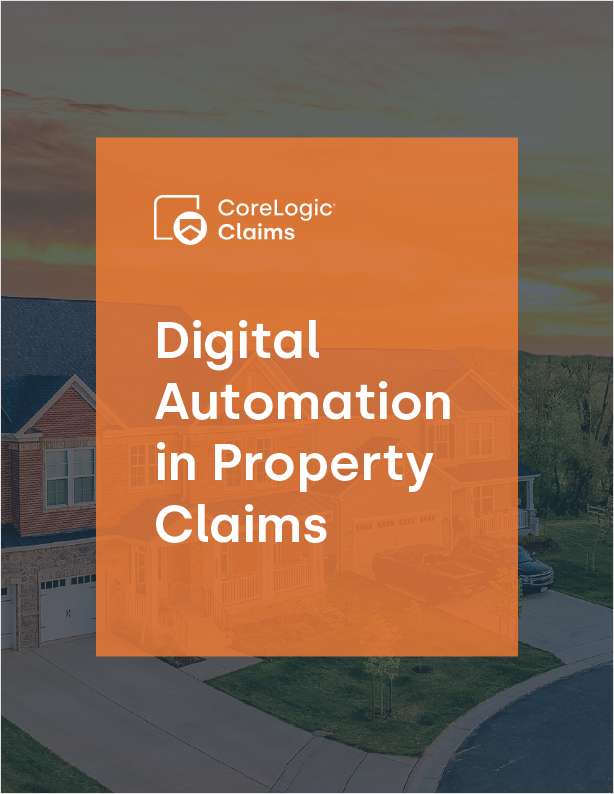Prison Gerrymandering Must End in Connecticut
Prison gerrymandering poses the question: Should inmates in Connecticut prisons be counted for legislative redistricting purposes in the "prison district" in which their prison is located or in the "home district" in which they permanently reside?
February 07, 2020 at 02:29 PM
5 minute read
 While the attention of the nation's election law community recently was focused on whether the U.S. Supreme Court would adjudicate claims of unconstitutional "partisan gerrymandering"—the drawing of legislative district lines to favor one political party at the expense of fair democratic representation—Connecticut was wrestling with a different form of improper election practice, prison gerrymandering.
While the attention of the nation's election law community recently was focused on whether the U.S. Supreme Court would adjudicate claims of unconstitutional "partisan gerrymandering"—the drawing of legislative district lines to favor one political party at the expense of fair democratic representation—Connecticut was wrestling with a different form of improper election practice, prison gerrymandering.
Prison gerrymandering poses the question: Should inmates in Connecticut prisons be counted for legislative redistricting purposes in the "prison district" in which their prison is located or in the "home district" in which they permanently reside?
The answer to this question will have an important political impact on the 2021 state redistricting plan because in Connecticut there are 16,000 residents locked up in state and federal prisons. Under the 2011 state redistricting plan, the average resident population for each state House district was approximately 23,000.
The U.S. Supreme Court determined last June in Rucho v. Common Cause that "partisan gerrymandering" is a non-justiciable political question under the U.S. Constitution, but it did not close the federal courthouse door to complaints against other anti-democratic types of gerrymanders, such as claims of "racial gerrymanders" or the failure to respect the "one person/one vote" mandate of the 14th Amendment.
Thus, in September 2019, the Second Circuit Court of Appeals upheld the justiciability of the 2018 complaint filed by the NAACP's Connecticut Conference in federal court alleging Connecticut's 2011 redistricting plan violates the "one person, one vote" mandate of the Fourteenth Amendment by counting incarcerated persons in their "prison district" [NAACP v. Merrill]. In our view, the appellate court properly rejected the state's claims that it was shielded by Eleventh Amendment immunity from suit and that the NAACP lawsuit presented a non-justiciable political question.
We believe the constitutional claims raised by the plaintiff NAACP showcase a disturbing anti-democratic practice in Connecticut that needs to be corrected either by preemptive legislative action that changes the allocation method of counting inmates for redistricting purposes or by an adjudication in favor of the plaintiffs.
The basic anti-democratic flaw of "prison gerrymandering" is that the practice artificially inflates the political representation of the mostly rural districts in which prisons are located while artificially deflating the representational power of the more urban districts in which most of the state's prisoners reside.
This undemocratic impact is compounded by the fact of severe racial and ethnic disparities in Connecticut's inmate population. As of the last federal census, whites constituted 71% of the state's population but accounted for only 31% of the inmate population; Blacks constituted only 10% of the population but constituted 41% of the inmate population; and Hispanics constituted only 13% of the population but 29% of inmates.
Thus, "prison gerrymandering" has the double effect of overinflating the representational voting power not just of rural over urban districts but also predominately white over minority-populated districts. By counting inmates for redistricting purposes where they permanently reside rather than where they are incarcerated, the state could reverse this practice that now denies artificially the "one person-one vote" legislative representation of urban communities.
Although we are pleased the Second Circuit has enabled the NAACP's lawsuit to proceed, the urgency of correcting this population allocation flaw prior to the upcoming 2020 Census and 2021 redistricting calls out for a legislative solution. The states of New York and Maryland changed their laws to require use of "home district" rather than "prison district" addresses for their 2011 redistricting. California, Delaware, Nevada and Washington State's revised laws will apply to the 2020 census.
Ironically Connecticut Secretary of the State Denise Merrill, one of the named defendants in the NAACP lawsuit, supports legislation ending "prison gerrymandering."
Adopting a legislative solution would also enable state lawmakers to craft a fix that eliminates political as well as legal problems. For example, a rural legislator who represents a prison district complained at a legislative hearing last year that while she supported the democratic principle she nonetheless opposed the bill ending prison gerrymandering because it might lead to her town losing education funding that is allocated on a per capita basis resulting from the consequential loss of inmate population.
It befuddles us why a town should be receiving per pupil educational aid for inmates who don't attend public schools or use other municipal services, but the legislature (unlike a court) could enact a "hold harmless" or other funding solution that gives the democracy reform a chance to succeed on its merits.
While there are other election law reforms needed that will impact the criminal justice system in Connecticut—for example, joining other states that grant the right to vote to felons who are no longer incarcerated on probation or parole—we call as a matter of high priority for the elimination of the practice of "prison gerrymandering" in time to enact a fairer and more democratic 2021 legislative redistricting plan.
This content has been archived. It is available through our partners, LexisNexis® and Bloomberg Law.
To view this content, please continue to their sites.
Not a Lexis Subscriber?
Subscribe Now
Not a Bloomberg Law Subscriber?
Subscribe Now
NOT FOR REPRINT
© 2025 ALM Global, LLC, All Rights Reserved. Request academic re-use from www.copyright.com. All other uses, submit a request to [email protected]. For more information visit Asset & Logo Licensing.
You Might Like
View All
ADVANCE Act Offers Conn. Opportunity to Enhance Carbon-Free Energy and Improve Reliability With Advanced Nuclear Technologies

Trending Stories
- 1States Accuse Trump of Thwarting Court's Funding Restoration Order
- 2Microsoft Becomes Latest Tech Company to Face Claims of Stealing Marketing Commissions From Influencers
- 3Coral Gables Attorney Busted for Stalking Lawyer
- 4Trump's DOJ Delays Releasing Jan. 6 FBI Agents List Under Consent Order
- 5Securities Report Says That 2024 Settlements Passed a Total of $5.2B
Who Got The Work
J. Brugh Lower of Gibbons has entered an appearance for industrial equipment supplier Devco Corporation in a pending trademark infringement lawsuit. The suit, accusing the defendant of selling knock-off Graco products, was filed Dec. 18 in New Jersey District Court by Rivkin Radler on behalf of Graco Inc. and Graco Minnesota. The case, assigned to U.S. District Judge Zahid N. Quraishi, is 3:24-cv-11294, Graco Inc. et al v. Devco Corporation.
Who Got The Work
Rebecca Maller-Stein and Kent A. Yalowitz of Arnold & Porter Kaye Scholer have entered their appearances for Hanaco Venture Capital and its executives, Lior Prosor and David Frankel, in a pending securities lawsuit. The action, filed on Dec. 24 in New York Southern District Court by Zell, Aron & Co. on behalf of Goldeneye Advisors, accuses the defendants of negligently and fraudulently managing the plaintiff's $1 million investment. The case, assigned to U.S. District Judge Vernon S. Broderick, is 1:24-cv-09918, Goldeneye Advisors, LLC v. Hanaco Venture Capital, Ltd. et al.
Who Got The Work
Attorneys from A&O Shearman has stepped in as defense counsel for Toronto-Dominion Bank and other defendants in a pending securities class action. The suit, filed Dec. 11 in New York Southern District Court by Bleichmar Fonti & Auld, accuses the defendants of concealing the bank's 'pervasive' deficiencies in regards to its compliance with the Bank Secrecy Act and the quality of its anti-money laundering controls. The case, assigned to U.S. District Judge Arun Subramanian, is 1:24-cv-09445, Gonzalez v. The Toronto-Dominion Bank et al.
Who Got The Work
Crown Castle International, a Pennsylvania company providing shared communications infrastructure, has turned to Luke D. Wolf of Gordon Rees Scully Mansukhani to fend off a pending breach-of-contract lawsuit. The court action, filed Nov. 25 in Michigan Eastern District Court by Hooper Hathaway PC on behalf of The Town Residences LLC, accuses Crown Castle of failing to transfer approximately $30,000 in utility payments from T-Mobile in breach of a roof-top lease and assignment agreement. The case, assigned to U.S. District Judge Susan K. Declercq, is 2:24-cv-13131, The Town Residences LLC v. T-Mobile US, Inc. et al.
Who Got The Work
Wilfred P. Coronato and Daniel M. Schwartz of McCarter & English have stepped in as defense counsel to Electrolux Home Products Inc. in a pending product liability lawsuit. The court action, filed Nov. 26 in New York Eastern District Court by Poulos Lopiccolo PC and Nagel Rice LLP on behalf of David Stern, alleges that the defendant's refrigerators’ drawers and shelving repeatedly break and fall apart within months after purchase. The case, assigned to U.S. District Judge Joan M. Azrack, is 2:24-cv-08204, Stern v. Electrolux Home Products, Inc.
Featured Firms
Law Offices of Gary Martin Hays & Associates, P.C.
(470) 294-1674
Law Offices of Mark E. Salomone
(857) 444-6468
Smith & Hassler
(713) 739-1250












